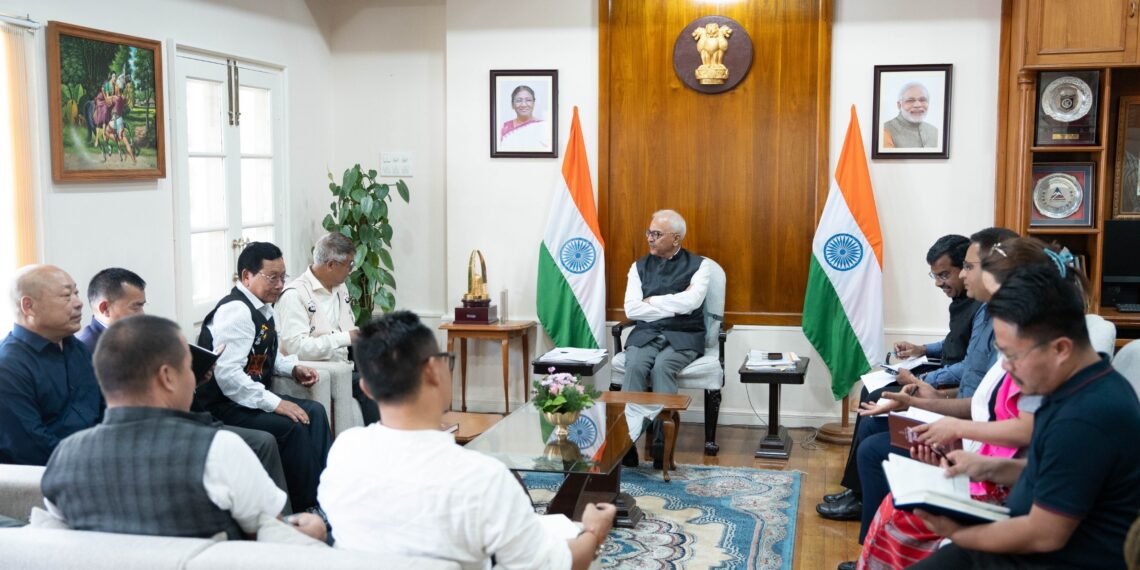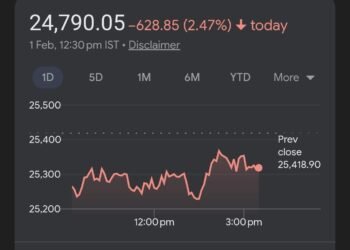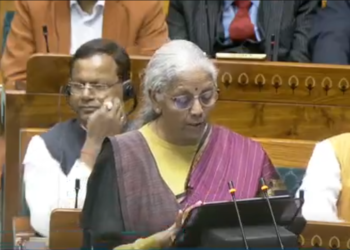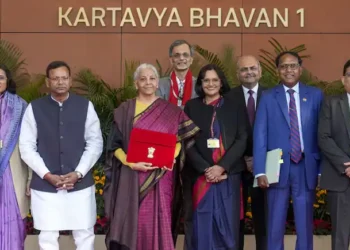Naga bodies argue the measures sever cross-border cultural ties, violate indigenous rights, and were imposed without proper consultation.
BY PC Bureau
August 16, 2025 — A delegation of the United Naga Council (UNC), along with representatives from other Naga civil society organizations, met Manipur Governor Ajay Kumar Bhalla at Raj Bhavan in Imphal on Saturday to press their demands for the immediate revocation of the abrogation of the Free Movement Regime (FMR) and a halt to the ongoing border fencing along the Indo-Myanmar border in Naga-inhabited areas.
The meeting follows the expiry of a 20-day ultimatum issued by the UNC to the central and state governments, threatening intensified protests if their demands remain unaddressed .Led by UNC president NG Lorho, the delegation, which included members of the Naga Women’s Union (NWU), All Naga Students’ Association, Manipur (ANSAM), and Naga People’s Movement for Human Rights-South (NPMHR-S), expressed deep concern over the central government’s unilateral decision to scrap the FMR and construct border fencing. ‘
ANCESTRAL RIGHT
The Naga groups argue that these measures violate their ancestral rights and sever historical, cultural, and familial ties with Naga communities across the border in Myanmar. They cited the United Nations Declaration on the Rights of Indigenous Peoples (UNDRIP), specifically Articles 8, 26, and 36, to support their claim that the policies were implemented without consulting affected indigenous communities.
 READ: Kishtwar Cloudburst: 60 Dead, Families Wait for 75 Still Missing
READ: Kishtwar Cloudburst: 60 Dead, Families Wait for 75 Still Missing
Governor Bhalla, reportedly acknowledging the grievances, assured the delegation that the matter had already been raised with the Ministry of Home Affairs. He urged the UNC to maintain peace and patience while engaging in constructive dialogue with the central government. “The governor listened attentively to our concerns and promised to facilitate a dialogue with the Government of India soon,” Lorho said after the meeting. However, he emphasized the UNC’s firm stance, stating, “The abrogation of the FMR and fencing in the middle of Naga land are not acceptable. We demand corrections to the demarcation to respect traditional Naga boundaries.”
The UNC’s 20-day ultimatum, issued on July 22, 2025, demanded three key actions: the immediate revocation of the FMR abrogation, a halt to all border fencing and demarcation works in Naga ancestral lands, and the initiation of a meaningful, time-bound dialogue with Naga civil societies and stakeholders. The ultimatum was submitted to Prime Minister Narendra Modi, Union Home Minister Amit Shah, Defence Minister Rajnath Singh, and External Affairs Minister S. Jaishankar. Despite multiple memoranda, public rallies, press statements, and protests across Naga hill districts since early 2024, the UNC stated that the government has failed to provide a satisfactory response.
Free Movement Regime
The FMR, a bilateral agreement between India and Myanmar, previously allowed residents within 16 kilometers of the border to cross without visas, fostering cultural and economic ties for border communities. Its abrogation in February 2024, announced by Home Minister Amit Shah, was justified by the government as a measure to enhance national security and curb illegal immigration and arms smuggling. Revised guidelines issued in December 2024 further restricted movement to 10 kilometers with a mandatory “border pass” system. The border fencing project, spanning an 80-kilometer stretch in Manipur’s Tengnoupal and Chandel districts, has been particularly contentious, as these areas are predominantly Naga-inhabited.
The Naga organizations have warned of resuming “stronger protest movements” across Manipur’s Naga hill districts, including Ukhrul, Senapati, Tamenglong, and Chandel, if their demands are not met. On July 31, UNC sources indicated they might resort to “extreme measures” following the ultimatum’s expiry, with plans to announce protest strategies within 15 days.
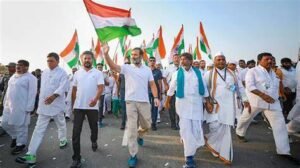 READ: Rahul’s Vote Adhikar Yatra to Cover 25 Districts, 50 Seats
READ: Rahul’s Vote Adhikar Yatra to Cover 25 Districts, 50 Seats
The central government defends the FMR abrogation and border fencing as necessary to address security concerns, including insurgency and demographic shifts in the Northeast. However, the Naga groups, alongside Kuki-Zo and Mizo communities, argue that these measures disrupt their indigenous rights and ancestral connections. In 2024, Nagaland became the second state after Mizoram to pass a resolution opposing the FMR scrapping and border fencing.
As tensions persist, the UNC’s meeting with Governor Bhalla marks a critical juncture in the ongoing struggle. The Naga organizations remain resolute, with Lorho asserting, “Whether an official invitation for dialogue comes or not, we will stand by our position.” The coming weeks will be pivotal in determining whether the central government engages in meaningful dialogue or faces escalated protests in Manipur’s Naga heartland.



